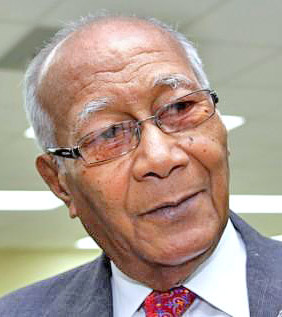
By Victor Ing (Asian Pacific Post)
Immigration, Refugees and Citizenship Canada (IRCC) recently announced the first details of a pilot project that offers a direct pathway to Canadian permanent residence for applicants who wish to permanently settle in Atlantic Canada.
The “Atlantic Immigration Pilot Project” (AIPP) begins in March 2017 and will accept up to 2000 applications in its first year of operation.
Citing a shrinking labour force and ageing population in Atlantic Canada, IRCC hopes that the pilot project will improve the economic outlook in New Brunswick, Nova Scotia, Prince Edward Island, Newfoundland and Labrador in the years to come.
The AIPP is open to graduates of publicly funded learning institutions in the Atlantic region and workers in and outside of Canada.
It stands out as a potentially attractive option for permanent residence for several reasons:
1. Less competition: As an alternative and direct pathway to immigration, applicants do not need to compete with other permanent residence candidates through IRCC’s Express Entry system or through local provincial nominee programs.
2. Intermediate-skilled workers wanted: Traditionally, most of Canada’s economic immigration programs designed for workers require applicants to have highly skilled work experience in National Occupational Classification (NOC) 0, A or B positions, which are typically professional and management level positions. However, this pilot project stands out because it allows intermediate-skilled workers with at least one-year of NOC level C experience within the last three years to apply directly for permanent residence if they have a permanent job offer from an approved employer in the Atlantic provinces.
Applicants applying as international graduates of a publicly funded educational institution in one of the Atlantic provinces do not need to show any pre-existing work experience to apply under this pilot project, but they will require a job offer of at least one year to be made by an approved employer.
3. Language threshold is lower: All economic applications for permanent residence in Canada require proof of English and/or French language ability. This is often a barrier to permanent residence for prospective immigrants from countries where English or French is not the native language. This pilot project allows applicants with only basic language ability (Canadian Language Benchmark Level 4) to apply directly for permanent residence. 4. No need to show recruitment efforts: Many of Canada’s economic immigration programs favour applicants who can show that they have already worked for the employer who is making them a job offer and those who can show that the employer has made genuine recruitment efforts to hire Canadians for the job first. These are not requirements in the AIPP.
The announcement of the AIPP could not have come at a better time. Shortly after IRCC announced the details of the pilot project at the end of January, Statistics Canada began releasing the first of its data from the 2016 Census results.
Canada’s most recent census results confirmed that the Atlantic provinces experienced the lowest population growth rates across Canada in the last five years.
Furthermore, New Brunswick was found to be the only province in Canada to have experienced a decrease in population. The AIPP aims to counter this trend and dramatically increase immigration to the Atlantic provinces.
The current details of the pilot project show that IRCC is taking an innovative approach to designing immigration strategies specific to the unique needs of the economic regions across Canada.
How the pilot project will be fully implemented remains to be seen, but IRCC plans to release further details about the AIPP sometime this month.
In the meantime, employers in the Atlantic provinces who wish to participate in this pilot project can apply for designation as a pre-approved employer to make job offers.
(Victor Ing is a lawyer of Sas & Ing Immigration Law Centre. He provides a full range of immigration services.
For more information go to www.canadian-visa-lawyer.com or email victor@canadian-visa-lawyer.com.)

This time a fake news site reported Richards died in New York where he was said to be receiving medical attention. Another site claimed the 85-year old had passed away in California.
This created some consternation among the population, with members of the public calling trying to seek confirmation of Richards’ death.
When contacted by the media, the former president’s daughter Maxine Richards said the reports were untrue.
Last November, Richards was also said to have died in New York. Again the family denied the report, with wife Dr Jean Ramjohn-Richards saying: “He’s in good health generally and we’re going out to dinner tonight.”
In recent months, a number of websites have posted fake news online on the death of several heads of states and governments, including Guyana’s former president Donald Ramotar.
Two of the mothers tested positive for the Zika virus, the cause of the microcephaly, during the course of their pregnancies. The ministry said of the 718 Zika cases confirmed since the onset of the epidemic in February last year 463 confirmed were of pregnancy cases.
The ministry’s is currently awaiting the results of tests done to determine the cause of the other two cases of microcephaly, the release said. It noted that this was in keeping with expected international rates of Zika-related complications.
The ministry also reminded the public, especially pregnant women or those planning to become pregnant, to take protective measures to reduce the likelihood of contracting the Zika virus.
The release said that the ministry was in close communication with the Ministry of Social Development and Family Services to ensure that assistance, as required, is made available to the babies and families affected by the disease, in keeping with established policy.


